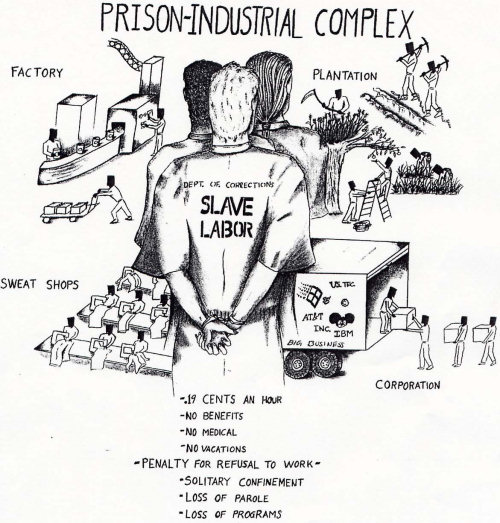All attempts to reform mass incarceration through the traditional mechanisms of electoral politics, the courts and state and federal legislatures are useless. Corporations, which have turned mass incarceration into a huge revenue stream and which have unchecked political and economic power, have no intention of diminishing their profits. And in a system where money has replaced the vote, where corporate lobbyists write legislation and the laws, where chronic unemployment and underemployment, along with inadequate public transportation, sever people in marginal communities from jobs, and where the courts are a wholly owned subsidiary of the corporate state, this demands a sustained, nationwide revolt.
“Organizing boycotts, work stoppages inside prisons and the refusal by prisoners and their families to pay into the accounts of phone companies and commissary companies is the only weapon we have left,” said Amos Caley, who runs the Interfaith Prison Coalition, a group formed by prisoners, the formerly incarcerated, their families and religious leaders. “Mass incarceration is the most important civil rights issue of our day. And it is time for communities of faith to stand with poor people, mostly of color, who are unfairly exploited and abused. We must halt human rights violations against the poor that grow more pronounced each year,” Caley said here. He and other prison reform leaders spoke Saturday at the Elmwood Presbyterian Church.
“We have to shut down the system,” said Gale Muhammad, another speaker and the founder and CEO of Women Who Never Give Up. “All the companies that use prison labor have to be boycotted. And we can’t stop there. We have to boycott the vending machines in the prisons and the phone companies. We have to stop spending our money. Until we hit them in the pocket they won’t listen.”

